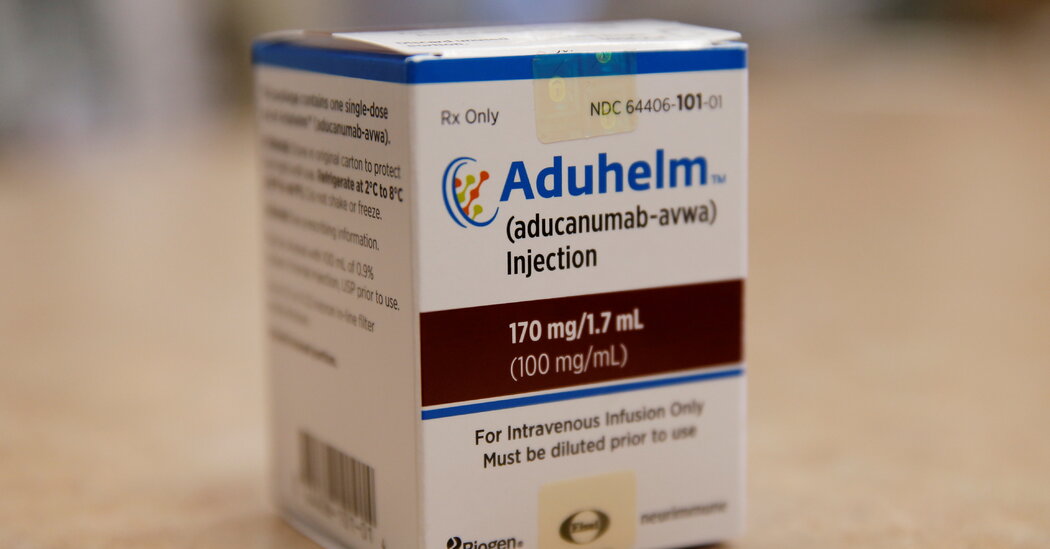The FDA’s own internal investigation said there was “no evidence” that interactions with Biogen were “anything but appropriate” given the complexity of the data and the importance of Alzheimer’s disease, but it made four recommendations to prevent future problems. appearance. The congressional report said the FDA had still not fully implemented them more than a year later.
The congressional report also questioned the FDA’s decision to give the drug a special designation known as “expedited approval.” The agency had “suddenly changed course,” the report noted, after months of saying Aduhelm would only be eligible for traditional clearance.
The report, which corroborated previous coverage by the Times, said the change came after a board of senior agency officials met to review Aduhelm, also known as aducanumab, and strongly agreed that there was not enough evidence was that it worked. According to meeting minutes obtained by The Times, the council said a clinical trial still needs to be conducted first, and one member warned that otherwise approval could lead to “millions of patients using aducanumab without any indication of any benefit, or worse, wreak havoc.”
But just three weeks after that meeting, in April 2021, the FDA told Biogen it is now considering Aduhelm for “accelerated approval,” which would allow drugs of uncertain benefit to be approved if they can treat serious diseases with few other options and if their biological mechanism is reasonably believed to help patients. Accelerated approval requires companies to conduct another trial, but the report notes that the FDA has given Biogen more than eight years to complete, allowing Aduhelm to be given to patients during that time.
The agency’s justification for accelerated approval was that Aduhelm targets a protein, amyloid, that forms plaques in the brains of Alzheimer’s patients. But many Alzheimer’s experts said years of data had failed to show that reducing amyloid slowed cognitive decline.
The congressional report said it was a “notable mistake” that the agency did not reconvene an independent advisory committee or an internal group of experts to consider expedited approval. It also said the agency contradicted its own Alzheimer’s drug guidelines, which said “the accelerated approval standard” had not yet been met for the disease. In its statement on Thursday, the FDA said it “intends to update the guidelines, issued in 2018” with the goal of continuing our drug review processes.
The report also addressed the FDA’s initial decision to approve Aduhelm for all Alzheimer’s patients, even though it had only been tested on people with mild early stages of the disease. FDA officials, justifying the decision, told committees that the broad label would have benefits, including allowing patients to continue taking Aduhelm after their early disease worsened.

